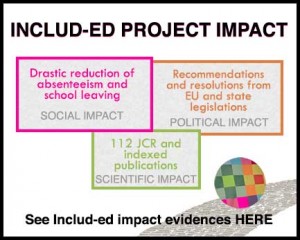INCLUD-ED Impact
Potential users
News & Media
The research leading to these results has received funding from European Community's Sixth Framework Program (FP6/2006-2011) under grant agreement: 028603.
Order Cheap Viagra at the Best Prices
buy apcalis sx drug for treatment of erectile dysfunction
Buy apcalis sx oral jelly Online Without Prescription
buy Generic Assurans online Sildenafil Citrate
Buy Brand and Generic Cialis Online
Buy Brand Levitra Online Erectile Dysfunction Pharmacy
Lowest Viagra Prices On The Internet
Buy Cheap Generic Cialis online
Buy Cheap Generic Cialis Black online
order Generic Cialis Daily online Tadalafil
buy Generic Cialis Flavored online Tadalafil
buy Generic Cialis Jelly online
Buy Generic Cialis Professional Online Without Prescription
Buy Generic Cialis Soft 20mg Online
purchase Cialis Super Active Generic online
Buy Cheap Erectalis No Prescription
Buy Cheap Eriacta No Prescription
purchase Extra Super Avana online Avanafil Dapoxetine
Buy Forzest Online Erectile Dysfunction Pharmacy
Buy Cheap Sildenafil Tablets Online intagra
Order Cheap Generic Kamagra online
Buy kamagra effervescent online
Buy Kamagra Flavored Online No Prescription
Buy Kamagra Gold Online Generic Discount Prices
Buy Kamagra Oral Jelly 100mg
buy Kamagra L Cream 2 % online Sildenafil Citrate Lignocaine
buy Kamagra Polo online Sildenafil
Buy Kamagra Soft Online No Prescription
Buy Generic Levitra Online
order Generic Levitra Oral Jelly online
buy Generic Levitra Professional online
Purchase levitra soft Online and Save Money
buy Generic Levitra With Dapoxetine
buy Malegra DXT online Sildenafil Duloxetine
order Malegra FXT online Sildenafil Fluoxetine
buy Megalis online Tadalafil
order Penegra online Sildenafil Citrate
Buy Red Viagra Online No Prescription
Buy Generic Revatio Best Price Without Prescription
Buy Silagra Online Legally
purchase Generic Sildalis onlin Sildenafil Citrate Tadalafil
order Generic Silvitra online Sildenafil Citrate Vardenafil
buy Generic Stendra online Avanafil
Buy Suhagra Online Without Prescription
buy Super Avana online Avanafil Dapoxetine
buy Sildenafil Citrate 100 mg with Dapoxetine 60 mg
order Super Kamagra Sildenafil Dapoxetine
purchase Super P-Force Sildenafil Dapoxetine
Buy Tadacip No Prescription
Buy Tadalis Sx Online Without Prescription
buy Tadapox online Tadalafil Dapoxetine
order Tadora online Tadalafil Without Prescription
order Vega H Cream 2% Sildenafil Citrate Lignocaine
order Generic Viagra Online buy
buy Generic Viagra Caps online
buy Viagra Gold Vigour Sildenafil Citrate
Buy Generic Viagra Jelly Online
Buy Generic Viagra Professional Online
Buy Viagra soft Online For Full Customer Satisfaction
order Generic Viagra Super Active online
Buy Vigora Online Without Prescription
Buy Zenegra Online Erectile Dysfunction Pharmacy








